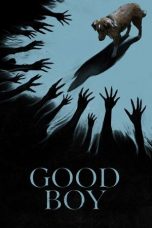I Confess (1953) Movie Review – Hitchcock’s Tense Exploration of Guilt and Moral Dilemma
I Confess (1953), directed by Alfred Hitchcock, is a psychological thriller that delves into themes of guilt, morality, and the sanctity of confession. The film, set in Quebec City, is one of Hitchcock’s more understated works, yet it carries the director’s signature tension and suspense. Starring Montgomery Clift, Anne Baxter, and Karl Malden, I Confess explores the conflict between personal conscience and religious duty in a gripping narrative that keeps audiences on edge. This review will explore the film’s plot, themes, direction, performances, and its availability for streaming, particularly in the United States.
Plot Overview
I Confess follows Father Michael Logan (Montgomery Clift), a Catholic priest who becomes embroiled in a murder investigation after hearing a confession from a man named Otto Keller (O.E. Hasse), who admits to killing a lawyer. Bound by the seal of confession, Father Logan cannot reveal what he knows to the authorities, even as circumstantial evidence begins to point toward him as the prime suspect.
As the investigation, led by Inspector Larrue (Karl Malden), intensifies, Father Logan faces a moral and ethical dilemma. He must choose between protecting the sanctity of the confessional and potentially clearing his name. His silence not only puts his own life in jeopardy but also strains his relationship with Ruth Grandfort (Anne Baxter), a woman from his past who is caught up in the investigation.
The tension in the film builds as Father Logan’s situation becomes increasingly precarious. Hitchcock masterfully weaves a narrative that keeps the audience questioning whether Logan will maintain his vow of silence or break it to save himself.
Themes and Emotional Impact
I Confess is rich with themes that explore the complexities of morality, faith, and human nature:
- Guilt and Innocence: The film delves into the theme of guilt, both in the literal sense of the crime committed and in the metaphorical sense as Father Logan struggles with his conscience. The idea of innocence is also central, as Logan is innocent of the crime but cannot prove it without betraying his vows.
- Moral Dilemma: The central conflict of the film revolves around Father Logan’s moral dilemma—whether to break the seal of confession to save himself or to uphold his religious duty, even at the cost of his life. This dilemma drives the narrative and creates a profound sense of tension.
- Faith and Sacrifice: I Confess explores the concept of faith, particularly in the context of Catholicism. Father Logan’s unwavering commitment to his vows, even in the face of grave danger, highlights the theme of sacrifice and the burden of spiritual duty.
- Justice and Injustice: The film also examines the justice system and the potential for injustice when the truth is obscured. Father Logan’s plight raises questions about the nature of justice and the consequences of silence.
The emotional impact of I Confess is subtle yet powerful, with the film’s slow-building tension and moral complexity drawing the viewer into Father Logan’s internal struggle. Hitchcock’s ability to evoke empathy for Logan’s predicament makes the film an emotionally resonant experience, despite its restrained style.
Direction and Cinematic Style
Alfred Hitchcock’s direction in I Confess is characterized by his trademark precision and attention to detail. While the film is less flashy than some of his other works, it is no less effective in creating suspense and tension.
Hitchcock uses the setting of Quebec City to great effect, with the city’s gothic architecture and narrow streets adding to the film’s atmosphere of claustrophobia and dread. The cinematography by Robert Burks enhances this mood, with stark black-and-white imagery that underscores the film’s themes of moral conflict and the stark choices faced by the protagonist.
The pacing of the film is deliberate, with Hitchcock focusing on character development and the psychological aspects of the story rather than on action or spectacle. This approach allows the audience to become deeply invested in Father Logan’s plight and the moral questions at the heart of the narrative.
The use of shadows and light is particularly notable in I Confess, with Hitchcock employing chiaroscuro techniques to reflect the inner turmoil of the characters. The contrast between light and dark visually represents the conflict between guilt and innocence, truth and deception.
Performances
The performances in I Confess are outstanding, with Montgomery Clift delivering a restrained and powerful portrayal of Father Michael Logan.
- Montgomery Clift: As Father Logan, Clift brings a quiet intensity to the role, conveying the character’s inner conflict and moral fortitude with subtlety and depth. Clift’s performance is marked by his ability to express emotion through minimal dialogue, relying instead on body language and facial expressions to convey the weight of Logan’s burden.
- Anne Baxter: Baxter plays Ruth Grandfort, a woman with a complicated history with Father Logan. Her performance adds an emotional layer to the story, as Ruth’s involvement in the plot brings out the personal stakes for Logan. Baxter’s portrayal is nuanced, capturing the character’s vulnerability and desperation.
- Karl Malden: As Inspector Larrue, Malden brings a sense of determination and moral ambiguity to the role. Larrue is a man committed to justice, but his relentless pursuit of Logan raises questions about the potential for injustice within the legal system. Malden’s performance adds to the film’s tension, as Larrue becomes increasingly suspicious of Logan.
- O.E. Hasse: Hasse’s portrayal of Otto Keller is chilling, as he embodies the guilt-ridden murderer whose confession sets the plot in motion. His performance is marked by a sense of desperation and moral decay, making Keller a complex and tragic figure.
Critical Reception and Legacy
I Confess received mixed reviews upon its initial release, with some critics praising its moral complexity and Hitchcock’s direction, while others found it less engaging than his more famous works. However, over time, the film has come to be appreciated as a subtle and thoughtful exploration of guilt and faith, with its themes resonating with modern audiences.
The film’s legacy lies in its exploration of moral dilemmas and its portrayal of the struggle between personal conscience and religious duty. I Confess is often cited as a lesser-known gem in Hitchcock’s filmography, offering a different, more introspective side of the director’s work.
Where to Watch I Confess (1953) Online
For those interested in watching I Confess, the film is available on several streaming platforms and rental services, particularly in the United States:
- Amazon Prime Video: I Confess can be rented or purchased on Amazon Prime Video, with rental prices typically starting at $3.99 and purchase options available for around $12.99.
- Apple TV: The film is available for rent or purchase on Apple TV, offering high-definition streaming for viewers.
- Google Play Movies & TV: I Confess can be rented or purchased on Google Play Movies & TV, providing flexibility for viewers on various devices.
- YouTube Movies: The film is accessible on YouTube Movies for rent or purchase, offering an easy streaming option.
- HBO Max: Depending on regional licensing agreements, the film may also be available on HBO Max as part of its classic film collection.
Final Verdict
I Confess is a thought-provoking and tension-filled film that showcases Alfred Hitchcock’s skill at exploring psychological and moral dilemmas. With a powerful performance by Montgomery Clift and a story that delves deep into issues of guilt, faith, and justice, the film offers a compelling and introspective viewing experience.
Available on multiple streaming platforms, I Confess is a must-watch for fans of Hitchcock and those interested in classic films that tackle complex ethical issues. Whether you’re drawn to its moral questions or its suspenseful narrative, I Confess is a film that leaves a lasting impression.
















